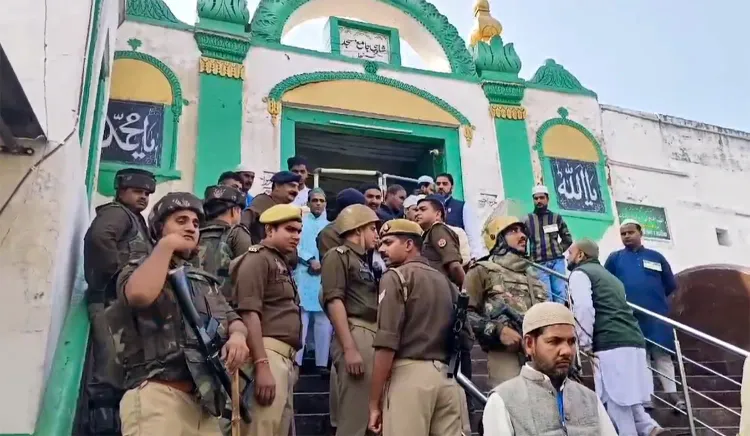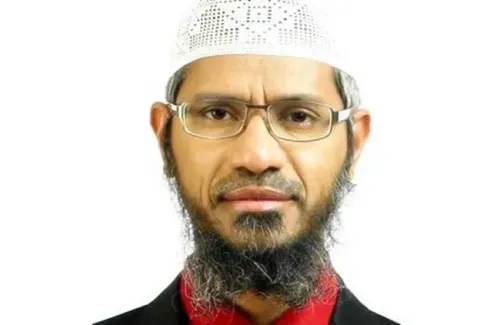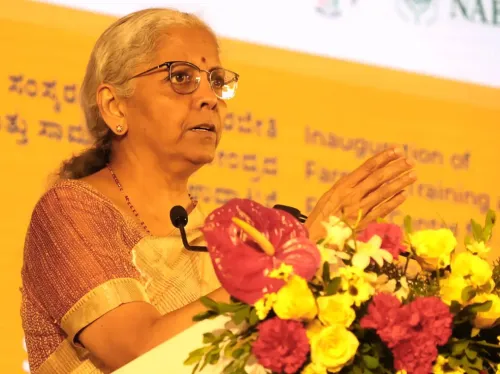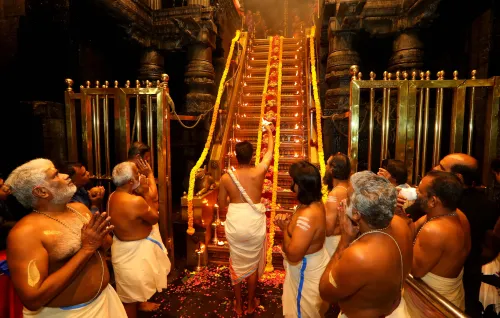Did the Allahabad HC Uphold the Survey Order for Sambhal Jama Masjid?

Synopsis
Key Takeaways
- The Allahabad High Court upheld the survey order for the Shahi Jama Masjid.
- Legal disputes stem from allegations regarding the mosque's historical origins.
- Violence during previous surveys has heightened tensions in the region.
- The mosque committee plans to appeal the decision in the Supreme Court.
- The Archaeological Survey of India has classified the mosque as a protected monument.
Allahabad, May 19 (NationPress) The Allahabad High Court confirmed the survey order from the Chandousi court regarding the Shahi Jama Masjid in Sambhal on Monday, dismissing the mosque committee's petition due to a lack of legal inconsistencies in the trial court's ruling.
The court rejected the civil revision petition, which sought to halt the ongoing proceedings, thus allowing the case to continue in the trial court.
The Shahi Jama Masjid has been embroiled in a legal controversy after Hindu petitioners claimed that the mosque was constructed over a Hindu temple called the Hari Mandir.
Violence erupted in Sambhal on November 24 of the previous year during a court-ordered survey of the Mughal-era mosque, resulting in the deaths of at least four individuals.
The Supreme Court had previously paused the trial court's proceedings, instructing that no further actions be taken until the High Court assessed the petition from the mosque committee.
With this recent ruling by Justice Rohit Ranjan Agarwal, the stay has been lifted, and the survey-related case is anticipated to advance in the Sambhal district court.
The mosque committee contended that the survey order was hastily issued without allowing them a chance to present their case. They also expressed concerns over the mosque being surveyed twice — once on the day of the order and again on November 24, when violence occurred.
Nonetheless, the High Court dismissed these claims and opted not to intervene in the ongoing legal process.
Advocate S.A. Naseem, representing the mosque committee, stated to IANS, "The mosque committee will contest this ruling in the Supreme Court."
Conversely, senior advocate Vishnu Shankar Jain, who represents the Hindu plaintiffs, welcomed the court's decision.
"Today, the court dismissed the petition from the mosque committee. I have consistently maintained that based on established legal principles and Order 26 Rules 9 and 10 of the Civil Procedure Code, a court can appoint a survey commissioner ex parte. The only stipulation is that the affected parties must be informed and allowed to be present during the survey," he said.
"The advocate commissioner has submitted a report to the court regarding the survey conducted on both occasions. The court has removed the interim order that was previously stayed by the Supreme Court. You may recall that the court had enforced a limited stay and directed the High Court to determine whether to maintain a stay on the trial. The High Court has lifted the stay, and now the Sambhal case trial will move forward carefully," he added.
The survey was conducted by Advocate Commissioner Ramesh Raghav, who has submitted a sealed report to the trial court.
The Hindu plaintiffs, including advocate Hari Shankar Jain and seven others, assert that the mosque is erected on the remnants of an ancient temple dedicated to Hari Har, which they claim was partially demolished in 1526 by order of Mughal emperor Babur.
In its court submission, the Archaeological Survey of India (ASI) indicated that the Shahi Jama Masjid is a centrally protected monument and cannot be classified as a place of public worship due to the absence of official records.









